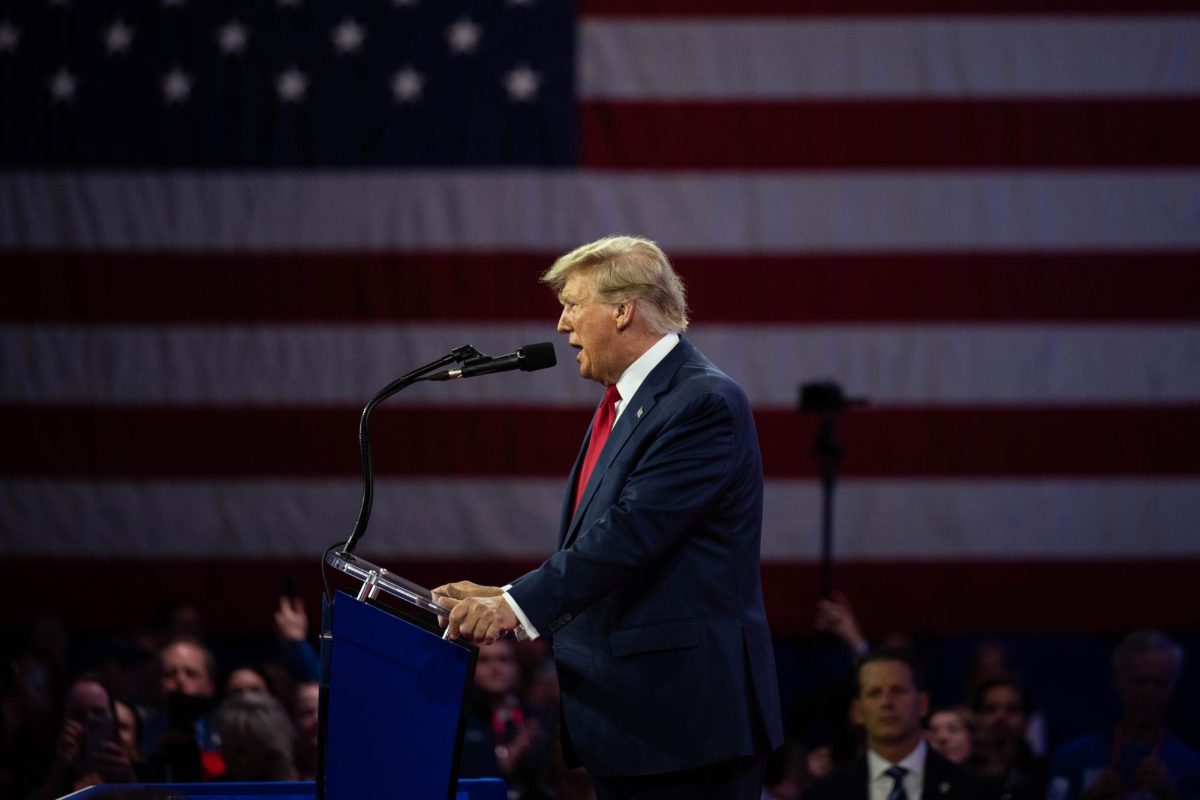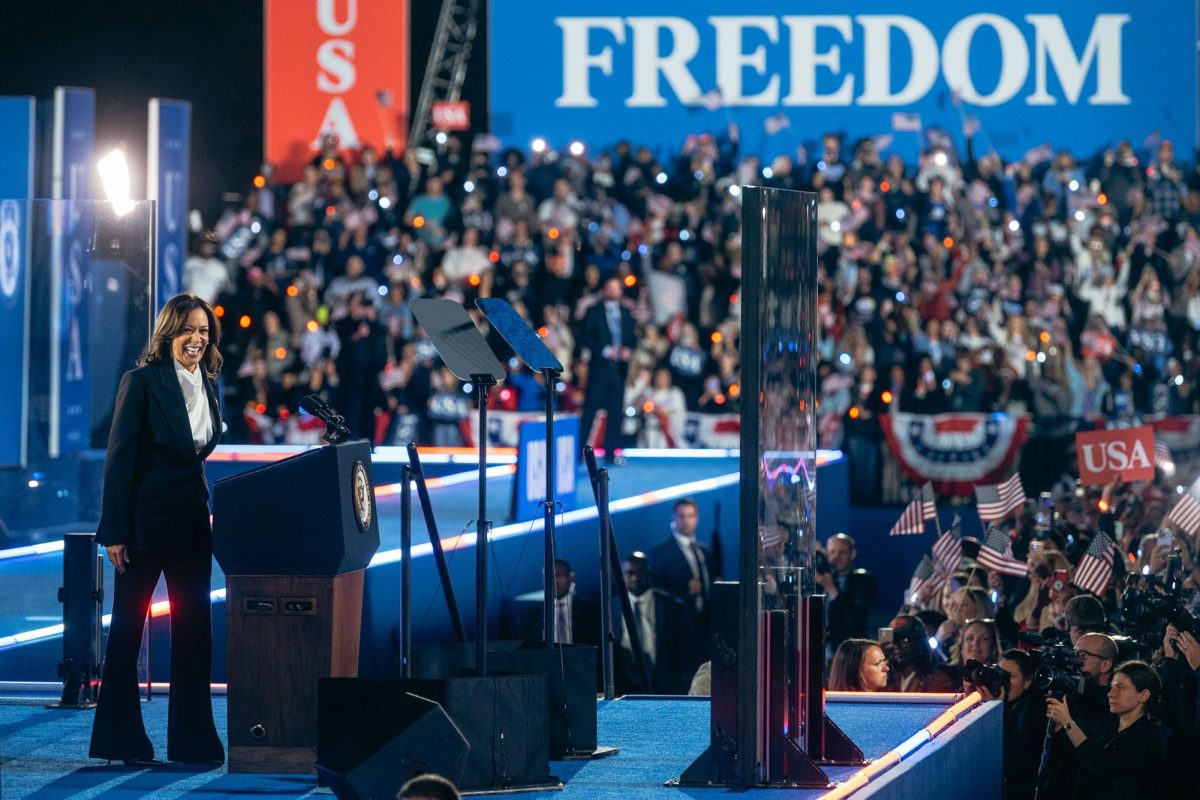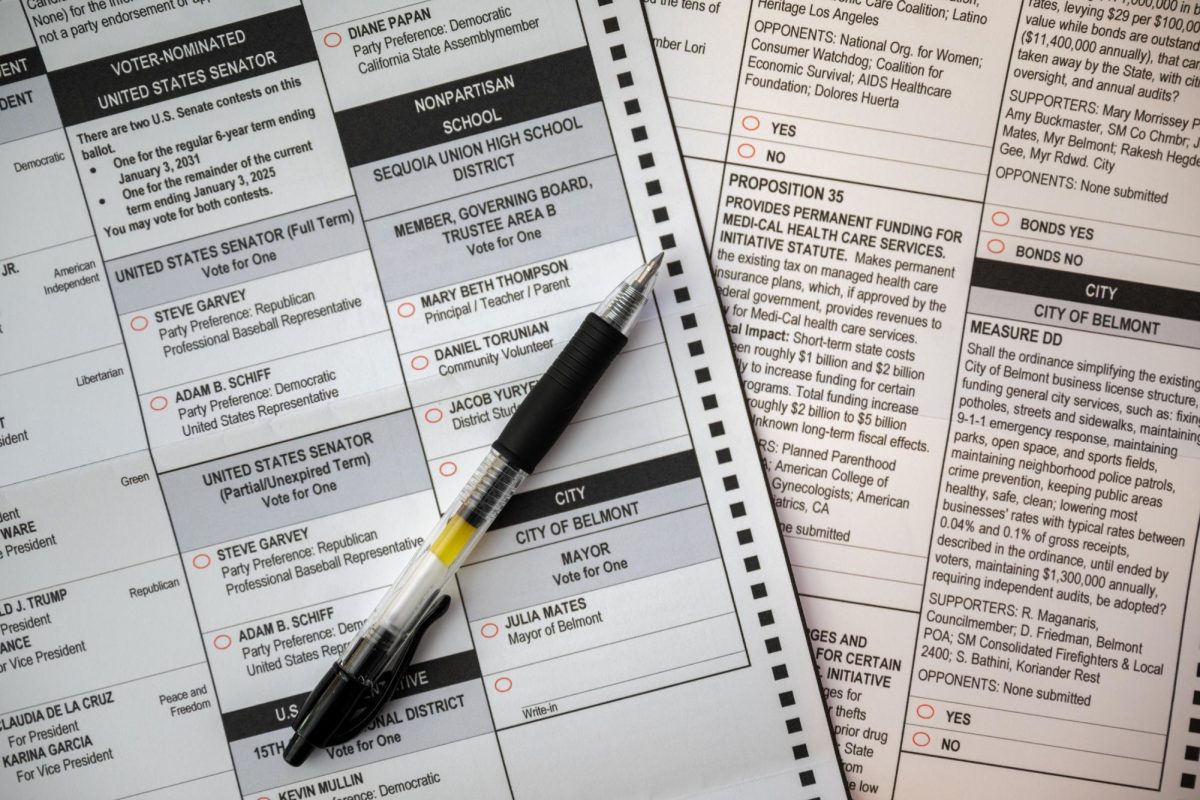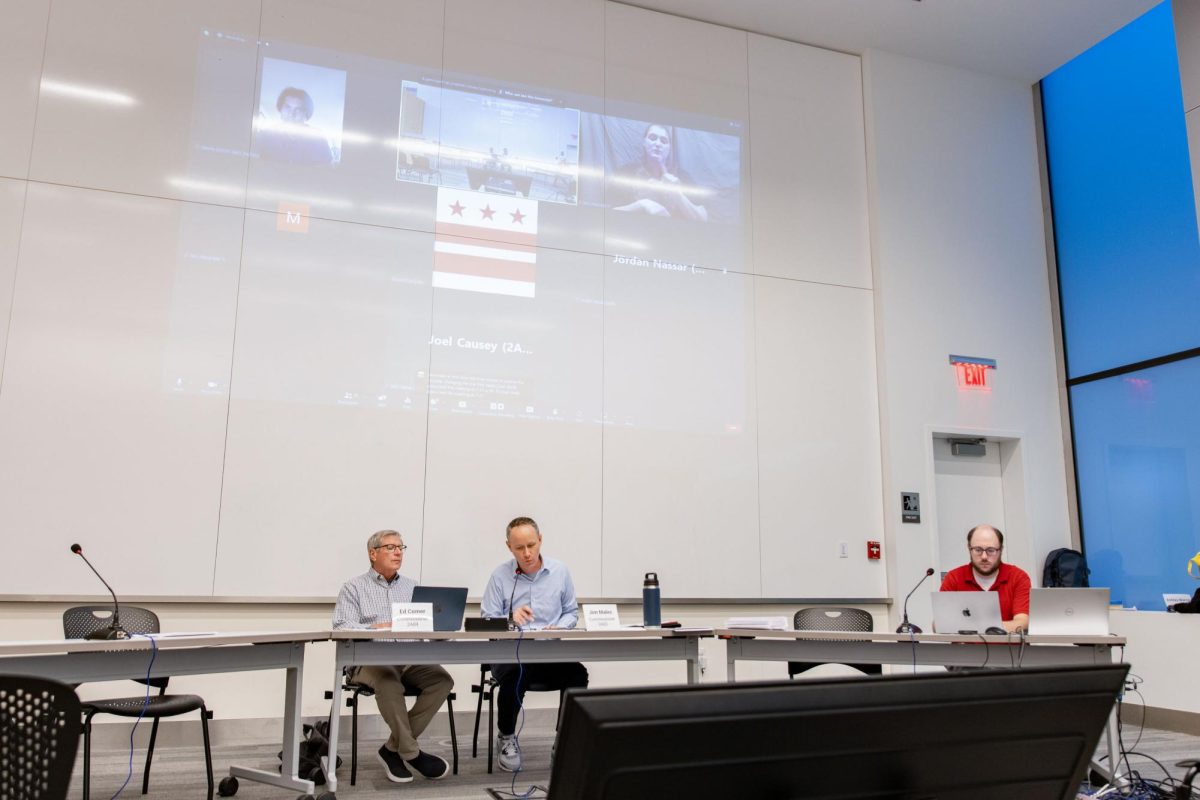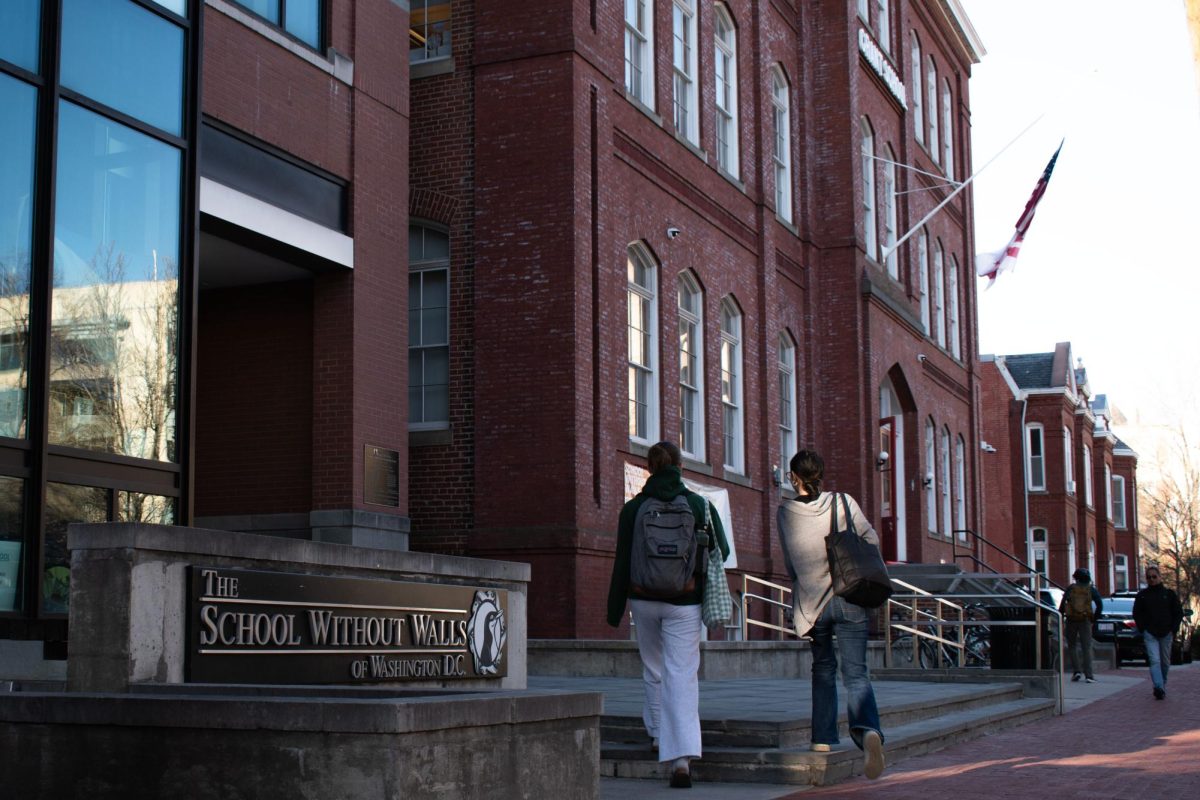Students said they plan to cast their ballots for the presidential race with a focus on issues like reproductive care, preserving democracy and the state of the economy — all subjects they feel are at the forefront of American politics this election.
Out of more than 60 students, nearly half said reestablishing abortion protections and preserving reproductive rights after the overturn of Roe v. Wade — a landmark Supreme Court case that granted access to abortion under the 14th Amendment’s right to privacy — is a top issue for the 2024 election. Others said issues like upholding democracy and improving the economy were deciding factors in their vote, followed by presidential candidates’ trustworthiness and lowering student debt.
Abortion
More than 25 students who plan to vote said electing officials who support codifying reproductive rights is the most pressing issue at stake this election year. This election will be the first presidential race since the Supreme Court overturned Roe v. Wade in 2022.
Vice President Kamala Harris has said she supports national access to abortion, blaming former President Donald Trump for the reversal of Roe. She has made her staunch support for reproductive rights a key point of her vice presidency and presidential bid, saying she’d urge Congress to pass a national law codifying abortion rights if elected to office and would abolish the filibuster to constitutionally protect the right to abortion.
Trump refers to himself as the most “pro-life president” in history, and he said he believes that abortion policy should be set by the states. During his time as president, he nominated conservative justices Amy Coney Barrett, Brett Kavanaugh and Neil Gorsuch to the court, all of whom voted to overturn Roe. Throughout his campaign, his stance on abortion has become increasingly muddled, switching positions from willingness to compromise on abortion policy to suggesting a national ban.
This election cycle, 10 states — Arizona, Colorado, Florida, Maryland, Missouri, Montana, Nebraska, Nevada, New York and South Dakota — have abortion measures on the ballot.
Junior Allie Robinson, an international affairs and economics student from Texas, said she’s voting to protect abortion rights because the United States was founded on the principle of freedom, which she said includes the right to choice and bodily autonomy. Twenty-one states currently ban or restrict abortion earlier than the precedent set by Roe, which mandated that pregnant people could receive the procedure until 24 weeks.
Robinson said she’s worried about risks to women’s health in her home state. Abortion is banned in Texas with the exception for situations where the life or health of the pregnant person is at risk.
“In Texas right now, there’s major restrictions leading to even the loss of life of individuals,” Robinson said.
Democracy
Nine of more than 60 students said the state of democracy in the U.S. hangs in the balance this election, especially in the wake of Jan. 6, 2021, when a pro-Trump group stormed the Capitol in an attempt to halt the certification of election results.
Harris has shaped her campaign around fighting for democracy, condemning Trump’s efforts to overturn the 2020 election and pledging to accept the results of the 2024 election. Trump, who did not accept the results of the 2020 election, has run to make election integrity a large component of his second reelection campaign. He and his allies have initiated several lawsuits ahead of the election, many of which intend to restrict casting and counting of mail-in ballots in Pennsylvania and other states to prevent alleged fraud.
He claimed, “Pennsylvania is cheating, and getting caught, at large scale levels rarely seen before” on Truth Social earlier this week, without providing evidence.
Students said they used the trustworthiness and likability of candidates as a metric for how effective and committed they expect both presidential candidates would be in upholding democracy. Some students said they worried Trump would retaliate against American politicians with opposing views and fail to wield the power of the presidency responsibly and interact diplomatically with foreign leaders, based on Trump’s last term.
Anna Maag, a junior majoring in international affairs, said her parents were immigrants who grew up under a communist regime, so they underscored what it meant to have choices and freedom in a democratic country. Maag said Trump, if elected, resembles a threat to democracy, which is one of the reasons she’s voting for Harris this election.
“I really care about a president that I believe is going to instill freedom and democracy into our nation,” Maag said. “And when I see candidates who’ve done the opposite of that, that really sours me.”
Economy
With voters ranking the economy as a top issue this election, Harris has said she wants to raise taxes on those earning $400,000 per year or more, and corporations, a policy in line with President Joe Biden’s plan. Harris said she backs Biden’s student-loan forgiveness plan.
Trump in 2017 lowered the personal tax rate from 39.6 percent to 37 percent and the corporate tax rate from 35 percent to 21 percent. He has proposed decreasing corporate tax rates for U.S.-made products and is against student loan debt cancelation. Trump also supports tariffs — up to 10 or 20 percent on every import coming into the U.S. and tariffs above 60 percent on all Chinese imports — to drum up American business and punish other countries for unfair trade practices.
Parker Malphrus, a sophomore majoring in political science, said the economy is a top issue for him this election. Malphrus said while Biden has been in office, the economy took a “downturn,” which he said will have the most impact on his day-to-day life.
Malphrus said he’d like to see improvement with lowering inflation and taxes. The inflation rate at the end of September 2024 was 2.44 percent.
“I’ve got four years here, then I’m going to be looking at potentially starting a family, buying a home,” Malphrus said. “All of that adds up.”
Conrad Morhenn, a junior double majoring in international affairs and economics, said one of the issues determining his vote is adding tax caps and improving the job market, which he will soon be entering. In October, the unemployment rate was 4.1 percent — or seven million people — just slightly higher than data from the year earlier, according to a U.S. Bureau of Labor Statistics report.
“The economic issues that are made during this presidency will have lasting impacts for the next, like, four or five years, and that’s kind of going to be the time period that I will be entering the workforce,” Morhenn said. “And I would like there to be a strong job market. So I think it’ll be easier to get jobs coming out of college or university.”
Barry Yao contributed reporting.



